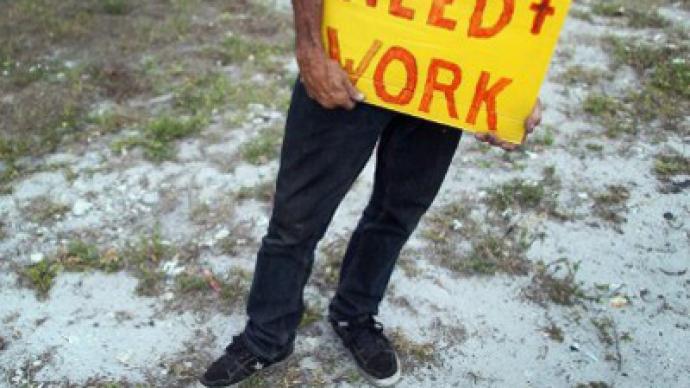Study links recession to child abuse

A terrifying trend has been identified by researchers mulling over data relating to the last American recession.
A study released in the journal Pediatrics today reveals a correlation between a downtrodden economy and child abuse in the United States.Comparing data from the years 2004 through 2009, researchers note a surge in reported cases of abusive head trauma among children under the age of five after the market crash of December 2007. In the three years leading up to the crash, the study suggests that the rate of abusive head injuries accounted for 8.9 of every 100,000 children, though that number jumped to 14.7 per 100,000 once the recession began — an increase of 67 percent."It's definitely disturbing," Elizabeth Gershoff, a psychologist who studies parenting, tells Reuters Health. Perhaps more disturbing was the revelation that the average age of children identified to have suffered from abusive head trauma is only nine months. The report suggests that 422 children were diagnosed with abusive head trauma over the five year span, with most of them ending up in the intensive care unit. Around 16 percent of the children accounted for in the study died of their injuries.The report analyzes data collected from six counties in the Seattle, Washington area, 23 counties in western Pennsylvania and 45 counties in Ohio and northern Kentucky. Should the sample prove to be consistent with the rest of the US population, the problems posed are horrific. "If what we are seeing is even close to generalizable, that is a lot of excess children,” writes one co-author of the report, Dr. Rachel P. Berge."If other regions of the country have seen similar increases," adds the report, "this result would correspond to hundreds, if not thousands, of excess AHT cases."Last week economists surveyed by the Wall Street Journal predicted the odds of a double-dip recession occurring to be around one-in-three, the highest they’ve been since America began to recover from the last one.Past research suggests that the increase in abuse cases during the last recession are not likely coincidental. The Los Angeles times reported an increase in abuse cases during hard economic times of the early 1990s, when they identified a 24 percent rise in child abuse reports between 1992 and 1993. "You've got this huge population that has slipped out of the ability to really raise their kids and has slipped into the welfare system or out of the housing market,” Peter Digre, director of the Department of Children's Services, told the Times back in an article from 1994. Researchers stress in their report that a relationship cannot be explicitly proven with their research, though they believe the study speaks for itself."Although it is not possible to prove a causal relationship between the AHT rate and the economy with our analysis, we believe the data are compelling enough to influence policy and clinical decisions," writes the authors. "The presence of an association between the economy and the AHT rate should be sufficient to spur a discussion of specific stressors," they add.Some experts say that the correlation is obvious, however. "We're finding that it is directly attributable to what is happening economically," Allison Scobie, program director of the Child Protection Team at Boston's Children's Hospital, told Reuters in April 2009. She said that as the economy worsened, she saw twice as many cases of severe inflicted injuries on children as she would expect otherwise. "Stress and poverty are risk factors for child abuse," pediatrician Peter Sherman adds to an article in HealthDay. "If people are stressed out, it's not a big stretch that they are at high risk for being abusive."Those stressors have obviously piled up as America entered and attempted to recover from a grave recession. Three years after it began, an unemployment epidemic and widespread poverty is still crippling the country’s economy. The US Census Bureau statistics for 2010 reveal that 56.2 million Americans are living below the poverty line today.













